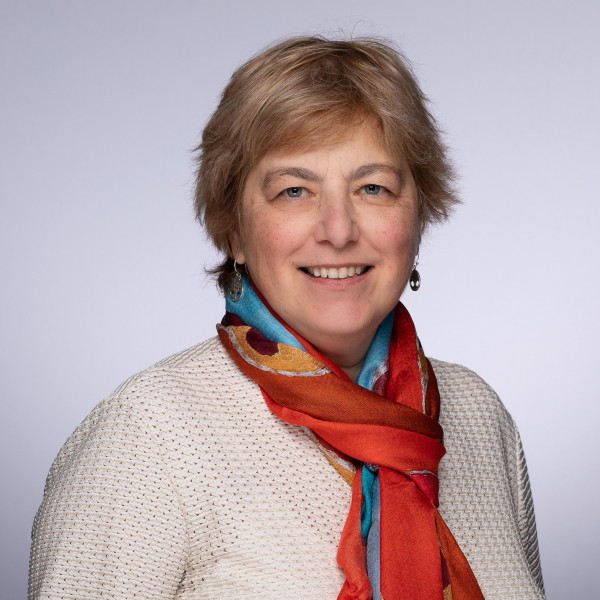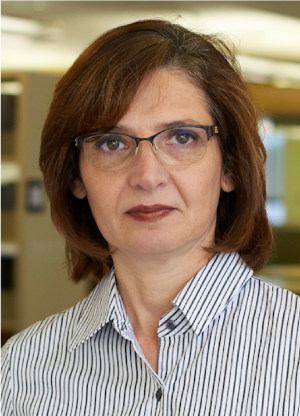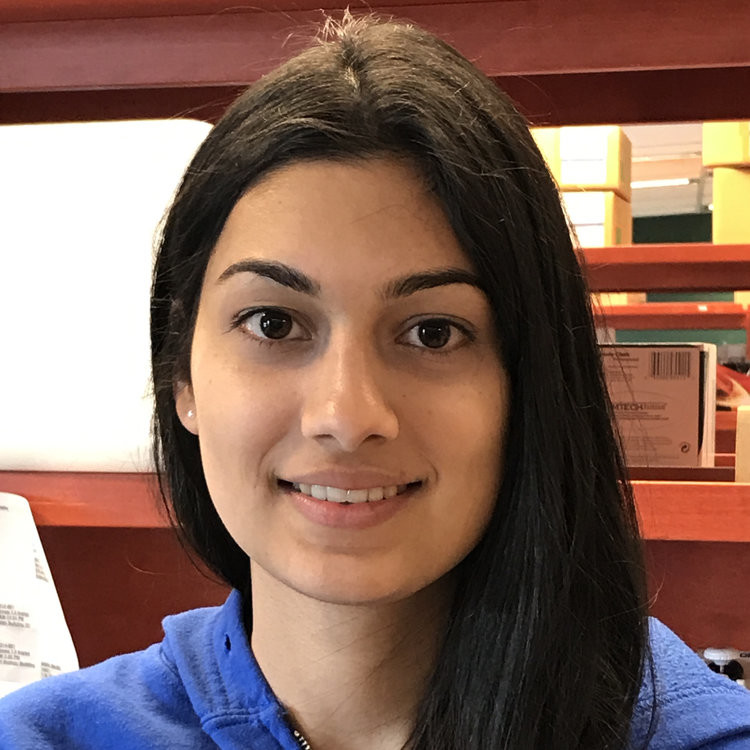Laura R. Winer, director of McGill University’s Teaching and Learning Services (TLS), has received the Lifetime Achievement Award from SALTISE (Supporting Active Learning & Technological Innovation in Studies of Education), an inter-disciplinary group dedicated to improving and supporting teaching and learning practices and processes on a continuous basis.
The honour is given to “individuals who have played a significant role in supporting the growth and well-being of our community.”
“Laura is indeed such an individual! ” the award noted.
Obvious choice

SALTISE is an umbrella group composed of over 1,200 individuals from seven educational institutions in Quebec: McGill University, Concordia University and UQÀM, as well as John Abbot College, Vanier College, Dawson College and Champlain College. Its annual conference attracts more than 500 participants, many of them from outside Quebec, including the University of British Columbia, Boston College, Tufts University, OISE (Ontario Institute for Studies in Education) and Sheridan College.
The selection committee congratulated Winer for overseeing “many initiatives at McGill, including the design and redesign of classrooms and teaching labs, faculty development programs, online education, student professional skills development, the appropriate and effective use of technology in teaching and learning, and policy development.”
Elizabeth Charles, the SALTISE co-director and a Learning Sciences researcher at Dawson College, said that Winer was an obvious choice for the award: “She’s been an important player at SALTISE as director of TLS. She’s a pillar of the community, someone who has deep roots helping the SALTISE community as well as her own community (at McGill).”
Importance of community
Winer has taught in the Faculty of Education at McGill, as well as those of Université de Montréal and Concordia University. She has also “conducted research on educational and training applications of information and communications technology, and published and presented nationally and internationally on faculty development issues, including online course evaluations, design of teaching and learning spaces, and integrating information and communication technologies into teaching and learning.”
Winer said in an interview she was “very gratified” by the honour.
“I think SALTISE is a very important organization. They do an amazing job of creating community between and among us, at the Cegep and university levels, and at French-speaking and English-speaking institutions.”
That sense of community is “important in general,” Winer added, “but in the current context (of the COVID-19 global pandemic), it’s incredibly important.”
Enhancing student engagement and supporting instructors
Her mandate is very broad and university-wide, she said, including holding consultations to support instructors, devising workshops and designing various learning and teaching environments.
The fundamental goals are to enhance student engagement and to support instructors in their teaching and learning activities. “Learning is not a spectator sport,” she added. “If a student is not actively engaged mentally, learning outcomes may suffer. So the goal is to align the way content is taught with ’meaningful’ learning.”
Traditional exams, Winer said, should not be the be-all and end-all of the learning process.
“It may be appropriate sometimes to assess someone’s ability to produce under pressure.”
But, she added, producing under pressure in a compressed amount of time favours memorization rather than deeper knowledge. Other metrics can provide better assessments of student learning.
Strategies to promote learning
Charles noted that a history professor or a physics professor may be tops in their field, but are not necessarily pedagogical experts – that is, knowing how to design to capture the engagement and commitment of students. Pedagogical researchers like the ones at SALTISE don’t tell instructors what to teach, but provide them with evidence-based guidelines and strategies that promote learning – not always an easy task to a skeptical audience, she conceded.
A field of study started in the 1990s to research and document in a systematic way design of instructional practices to support and improve learning, said Charles.
The COVID-19 pandemic is compounding the learning/teaching problem areas, but also presenting one of the biggest opportunities in decades for pedagogical experts, Charles said.
“All that ephemeral, face-to-face information is lost. So you lose the capacity for immediate feedback. But we can tell you how to replace it with information we do know.”
For students, the main issue is the workload expected of them by instructors. The internet has expanded time “exponentially” – source material is practically infinite and always available – so a course requires “better instruction rather than more instruction, better activities and arrangements.”
“Don’t expand the work, make it more meaningful.”
Instrumental in development of TLS
Two other McGill faculty members have previously won the SALTISE lifetime achievement prize; Maria Ojuela-Laverde, an academic associate at McGill’s Teaching and Learning Services, co-winner last year with Rob Cassidy of Concordia University; and Physics Prof. Kenneth Ragan, who holds the William C. Macdonald chair in physics in the McGill University Faculty of Science.
Ragan, who received the award in 2016, said in a statement that “for many years at TLS, Laura has been instrumental in helping that service develop into a leading source of pedagogical expertise and instruction at McGill, and in promoting enlightened and effective teaching and learning approaches across the institution. She has been a strong supporter of SALTISE and of the participation of McGill staff in furthering the emergence of a vibrant Montreal community committed to excellence in pedagogy.”
“This is a very deserved award!”
Alice Cherestes, Laura Pavelka win Best Practices and Pedagogical Innovation awards
Two other McGill faculty members received Best Practices and Pedagogical Innovation awards from SALTISE:

Alice Cherestes, a senior lecturer at Bioresource Engineering in McGill’s faculty of Agricultural and Environmental Sciences.
SALTISE cited Cherestes for “(exemplifying) excellence in pedagogical innovations, by transforming the freshman program in (her faculty) at McGill University through her teaching (many courses), through her leadership as a program director and through her innovations. Her work has been recognized numerous times… She pioneered the implementation of many active learning strategies at McGill, including the IFAT (Instant Feedback Assessment Technique), the two-stages exam in Organic Chemistry (combining individual with group assessments), and use of clickers for improved student engagement. She also built invaluable seminars focusing on crucial topics relevant to undergraduate life. Her most recent initiatives focused on organizing activities catering mental health, bridging school life and residence life…”
“(She) provides a framework for students to navigate their courses in a manner that they understand and learn, and they do this in collaboration with the instructor. She sees the teaching and learning landscape as one of partnership, building a ‘community of practice’ which is infusing throughout the campus and across McGill. In a larger sense, Cherestes isn’t only a teacher, but also a true ambassador, forging a meaningful legacy of academic excellence, at McGill University.”

Laura Pavelka, faculty lecturer in McGill’s Department of Chemistry.
“Since joining McGill University in 2012, Laura Pavelka, has been instrumental in developing student-centered pedagogical models in Organic and General Chemistry classes. She is an engaging, enthusiastic, and dedicated lecturer, and has consistently received excellent teaching evaluations.
Pavelka … constantly adapts the course content, lecture material, and learning resources in line with students’ needs and latest technological developments. As a committed member of the pedagogical community, she works closely with other educators at McGill in the AAU STEM project to determine and implement the most effective teaching strategies for large enrolment freshmen classes. As a member of the SALTISE S4 chemistry group, she is working with multiple other local educators to improve myDALITE, an open source web-based platform for enhancing student learning.”
Pavelka acted as local section chair for the Montreal branch of the Chemical Institute of Canada from 2014-present bringing together chemists and chemical engineers within the greater Montreal area.
Jasmin Chahal wins Support of Pedagogical Innovation, Graduate Student Award
SALTISE also recognized Jasmin Chahal, who recently received her post-doctorate degree, with the “Support of Pedagogical Innovation, Graduate Student Award” bestowed on graduate students for their “use of innovative pedagogies in their role as Teaching Assistants (TA), Research Assistants (RA), Course Lecturers and other tasks that support and/or are consistent with the goals of the SALTISE community.”

Chahal received her PhD from McGill’s Microbiology and Immunology Department, working in Selena Sagan’s lab. “Since 2014, she has been a Teaching Assistant for several courses, including an inquiry-based lab course where she independently created tools to support student learning.”
“From 2016-2018 she was McGill’s lead coordinator of Let’s Talk Science, a national science education organization, where she coordinated a network of STEM graduate students to develop hands-on activities and empower them to build their own teaching skills. Chahal also participates in the American Society for Microbiology Teaching Undergraduate Biology Certificate program.
Throughout her years as a student, TA and teacher Chahal has mentored multiple students in her lab and is recognized as an exceptional mentor by her peers and supervisor.”
